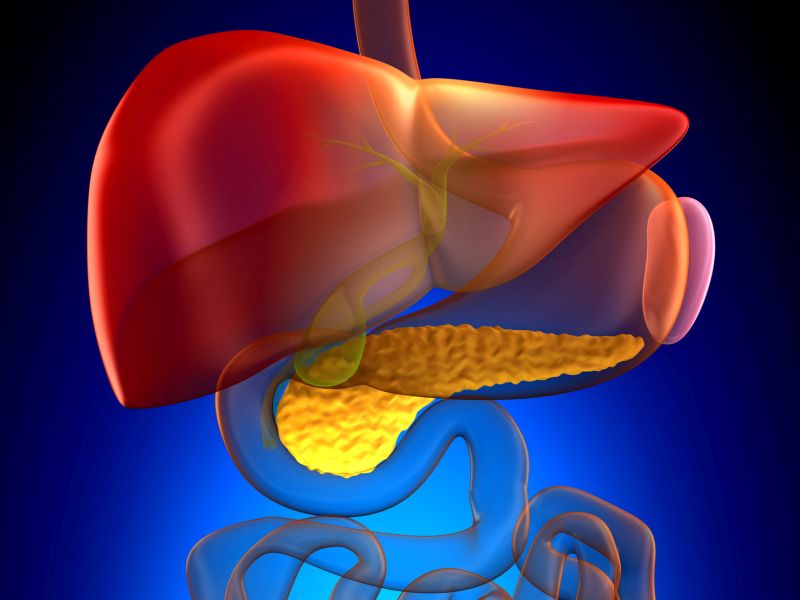
Tumors substantially shrank for just over 71% of patients treated with a three-drug regimen of nab-paclitaxel, gemcitabine and platinum-based cisplatin, the researchers found.
Further, 16 patients (64%) out of the 25 treated were still alive a year after treatment, more than double the average 26% one-year survival rate for people with advanced pancreatic cancer.
Ten patients (40%) were still alive after two years, a survival rate unheard of for patients with stage 4 pancreatic cancer, said senior researcher Dr. Daniel Von Hoff. He's director of the Translational Genomics Research Institute's molecular medicine division, in Phoenix.
All three drugs have been approved by the U.S. Food and Drug Administration for chemotherapy. Nab-paclitaxel and gemcitabine are the current front-line chemo combo used to treat pancreatic cancer, the study authors noted.
For the study, the researchers added low doses of platinum-based cisplatin to that usual combo, based on laboratory evidence that cisplatin inhibited the ability of pancreatic cancer cells to repair their DNA, causing them to self-destruct.
"We had preclinical evidence that these tumors have significant trouble repairing DNA damage, so throwing in a little something that causes DNA damage in a tumor would hopefully push it a little further," Von Hoff said.
Tumors wound up shrinking in seven of every 10 patients, nearly triple the usual response rate of 26%, Von Hoff said.
The researchers described the additional side effects as "tolerable," involving mainly blood-related conditions that were manageable.
About two-thirds of the patients experienced a decrease in platelets, the blood cells that help clotting, and one-third developed anemia from a reduction in the red blood cells that carry oxygen through the body. About one-quarter developed neutropenia, a drop in white blood cells that can impair immune response.
Because cisplatin is a long-standing chemo drug available in generic form, adding the drug should not dramatically increase the cost of cancer treatment, Von Hoff said.
"I wouldn't say it's dirt cheap, but it's pretty cheap," Von Hoff said.
Pancreatic cancer is relatively rare, accounting for about 3% of all cancers in the United States and about 7% of all cancer deaths, according to the American Cancer Society. About 57,000 people will be diagnosed with pancreatic cancer this year, and about 46,000 will die from it.
Based on the study, which was funded by Translational Genomics Research Institute and the HonorHealth Research Institute, Von Hoff expects the three-drug combination will be strongly considered as a potential treatment option by cancer doctors.
Dr. Len Lichtenfeld, interim chief medical officer for the American Cancer Society, agreed that the study will increase interest in this three-drug combo.
"Pancreatic cancer usually presents in an advanced state, requiring chemotherapy, and the chemotherapy options are not particularly good," Lichtenfeld said. "This study of a relatively small number of patients suggests this regimen of currently available drugs appears to be better than the other treatments used for this disease."
However, Lichtenfeld said more study is needed to cement the drug cocktail's results. This study was very small and patients were not chosen at random, so there could be other factors that account for the responses seen here, he said.
Lichtenfeld added that while encouraging, the study does not constitute the sort of revolutionary new treatment seen in other cancers through the innovative use of targeted therapies or immunotherapies.
"I don't think it rises to that level," Lichtenfeld said. "I think through some adjustments of available treatments we have a lot of experience with, the results were better. But is it the breakthrough treatment for pancreatic cancer we all hope for? No, it's not going to rise to that level."
Sources: Daniel Von Hoff, M.D., director, Translational Genomics Research Institute's molecular medicine division, Phoenix; Len Lichtenfeld, M.D., interim chief medical officer, American Cancer Society; Oct. 3, 2019, JAMA Oncology, online.







0 Comments